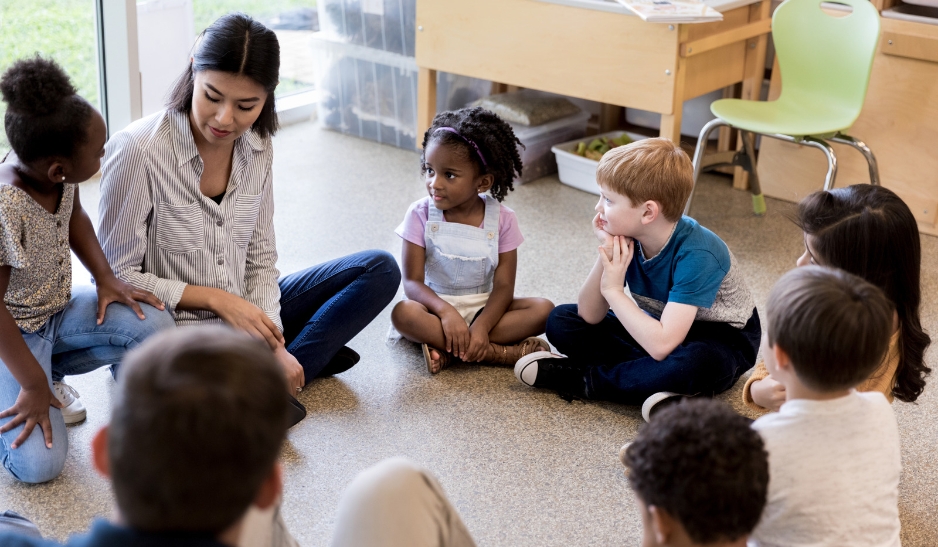9 Exciting Indoor and Outdoor Games for Enriching Afterschool Programs

9 Exciting Indoor and Outdoor Games for Enriching Afterschool Programs
Afterschool programs are indispensable components of children's education. They serve as safe havens, where students can explore new interests, cultivate valuable skills, and supplement their classroom learning in a nurturing environment. This extends the structured learning from schools into the informal setting of an afterschool program. Even more importantly, these programs are excellent platforms to implement innovative learning approaches, such as project-based learning, which encourages students to explore real-world problems and challenges.
A cornerstone of highly effective afterschool programs is the thoughtful incorporation of games. These aren't just ordinary games, but carefully selected activities that promote critical thinking, adapt to diverse learning styles, and spur community engagement. Games, whether indoor or outdoor, introduce an element of fun into the learning process, making it more engaging for children. They transform abstract classroom concepts into tangible experiences that students can directly interact with, thereby reinforcing and enriching their learning journey.
Game On: The Power of Play in Afterschool Learning
In the realm of children's learning, games are much more than mere entertainment. They serve as powerful tools that stimulate the mind, foster social interactions, encourage physical activity, and, above all, make learning fun and enjoyable. Indoor and outdoor games, while seemingly different in nature, both contribute uniquely to the enrichment of afterschool programs.
Indoor games often involve elements that boost cognitive development and strategic thinking. These games may include puzzles, storytelling, and board games that require players to apply critical thinking, enhance their concentration, and develop their problem-solving skills. Meanwhile, outdoor games promote physical activity, teamwork, and a spirit of sportsmanship among children. They allow for a more kinetic learning style, which is essential for the holistic development of students. In essence, indoor and outdoor games cater to various learning styles, making education more inclusive and effective.
Integrating a mix of indoor and outdoor games into afterschool programs introduces a dynamic, hands-on element to the learning process. This type of project-based learning promotes the application of knowledge in practical scenarios, enabling children to learn in a more engaging and relatable manner. Furthermore, games provide an excellent opportunity for community engagement, inviting parents and community members to participate actively in the children's learning process. This collaboration strengthens community ties and enhances the overall effectiveness of afterschool programs.
Play, Learn, Grow: 9 Inspiring Games to Boost Your Afterschool Program
Incorporating a diverse range of indoor and outdoor games into an afterschool program can significantly enhance the learning experience for children. These games stimulate project-based learning, fostering an environment where children actively apply their knowledge and skills. They cater to various learning styles, ensuring an inclusive and comprehensive approach to education. By boosting critical thinking through strategy and problem-solving elements, these games cultivate essential cognitive skills. Furthermore, games also offer opportunities for community engagement, making the learning process more collaborative and enriching. This integration transforms afterschool programs into vibrant, dynamic learning hubs.
Inside Adventures: 4 Stimulating Indoor Games
Indoor games like Charades, Jenga Tower, Puzzles, and Storytelling Circle offer a spectrum of benefits for children. From boosting creativity and critical thinking, to honing fine motor skills and language abilities, these games encompass a wide range of learning outcomes.
- Charades: A classic game, Charades fosters creativity and quick thinking. Participants mime a word or phrase without speaking while their team guesses the answer. This activity encourages children to think on their feet, enhancing their problem-solving and communication skills, ideal for auditory and visual learners.
- Jenga Tower: Jenga challenges players to remove and restack wooden blocks from a tower without it toppling over. It not only promotes fine motor skills but also enhances strategic thinking. Children learn to foresee consequences and make decisions, reinforcing their critical thinking skills.
- Puzzles: Puzzles of all kinds, whether they're jigsaw, crossword, or 3D puzzles, stimulate cognitive development. They encourage children to recognize patterns, enhance their problem-solving skills, and boost their concentration. Plus, completing a puzzle delivers a sense of accomplishment, building children's confidence in their abilities.
- Storytelling Circle: Storytelling Circle fosters creativity, language skills, and empathy. Children take turns adding to a collective narrative, learning to listen attentively, and contribute thoughtfully. This group project-based activity encourages children to think creatively, develop their storytelling skills, and appreciate different perspectives.

In conclusion, indoor games present an engaging, cognitive-rich environment for children. By incorporating those 4 different kinds of games into afterschool programs, we can provide diverse and stimulating opportunities for children to develop essential skills and enjoy the process of learning.
Sunshine and Strategy: 5 Engaging Outdoor Games
Outdoor games such as Treasure Hunt, Capture the Flag, Tug of War, Hopscotch, and Hide and Seek offer a thrilling blend of physical activity and cognitive challenges. They foster teamwork, physical fitness, strategic thinking, and more, all while immersing children in fun-filled, engaging experiences.
- Treasure Hunt: Treasure hunts combine adventure with learning. Children follow a series of clues or a map to find a 'treasure', honing their navigation, problem-solving, and team-building skills. This project-based activity encourages children to work collaboratively, think strategically, and engage in active learning.
- Capture the Flag: This game involves two teams, each defending their own flag while attempting to capture the other's. It promotes teamwork, strategy, and physical fitness. Children learn the importance of rules, fair play, and collaboration while enjoying a thrilling and active outdoor experience.
- Tug of War: A simple game with profound benefits, Tug of War encourages team effort and physical strength. Two teams pull at opposite ends of a rope, aiming to drag their opponents over a central line. This game enhances cooperation, communication, and sportsmanship.
- Hopscotch: Hopscotch is a classic game that promotes motor skills, balance, and coordination. Children hop through numbered spaces outlined on the ground, incorporating learning numbers for younger children. This game offers an entertaining way to engage in physical activity and cognitive learning.
- Hide and Seek: Hide and Seek is more than just a fun game. It promotes problem-solving, strategic thinking, and physical activity. Children learn to navigate their environment, assess safe hiding places, and strategize their moves, thereby enhancing their cognitive skills and physical fitness.
Overall, outdoor games like these contribute to a comprehensive learning experience. By incorporating these games into afterschool programs, we can encourage children to develop vital physical and social skills, promoting holistic growth and development.
Conclusion
Incorporating indoor and outdoor games into afterschool programs can transform the learning experience for children. These games encourage project-based learning, boost critical thinking, and cater to diverse learning styles. They also foster community engagement, turning afterschool programs into a collaborative endeavor.
As educators and program coordinators, it's our responsibility to create an enriching, engaging, and inclusive learning environment. By integrating these nine games into your afterschool programs, you can facilitate holistic learning experiences for your students.
At Curacubby, we understand the challenges that come with planning and implementing successful afterschool programs. That's why we offer customizable, user-friendly tools designed to streamline your program management process. With our innovative solutions, you can focus more on enriching your curriculum with exciting indoor and outdoor games, and less on administrative tasks. Together, let's make afterschool learning more rewarding for everyone.









